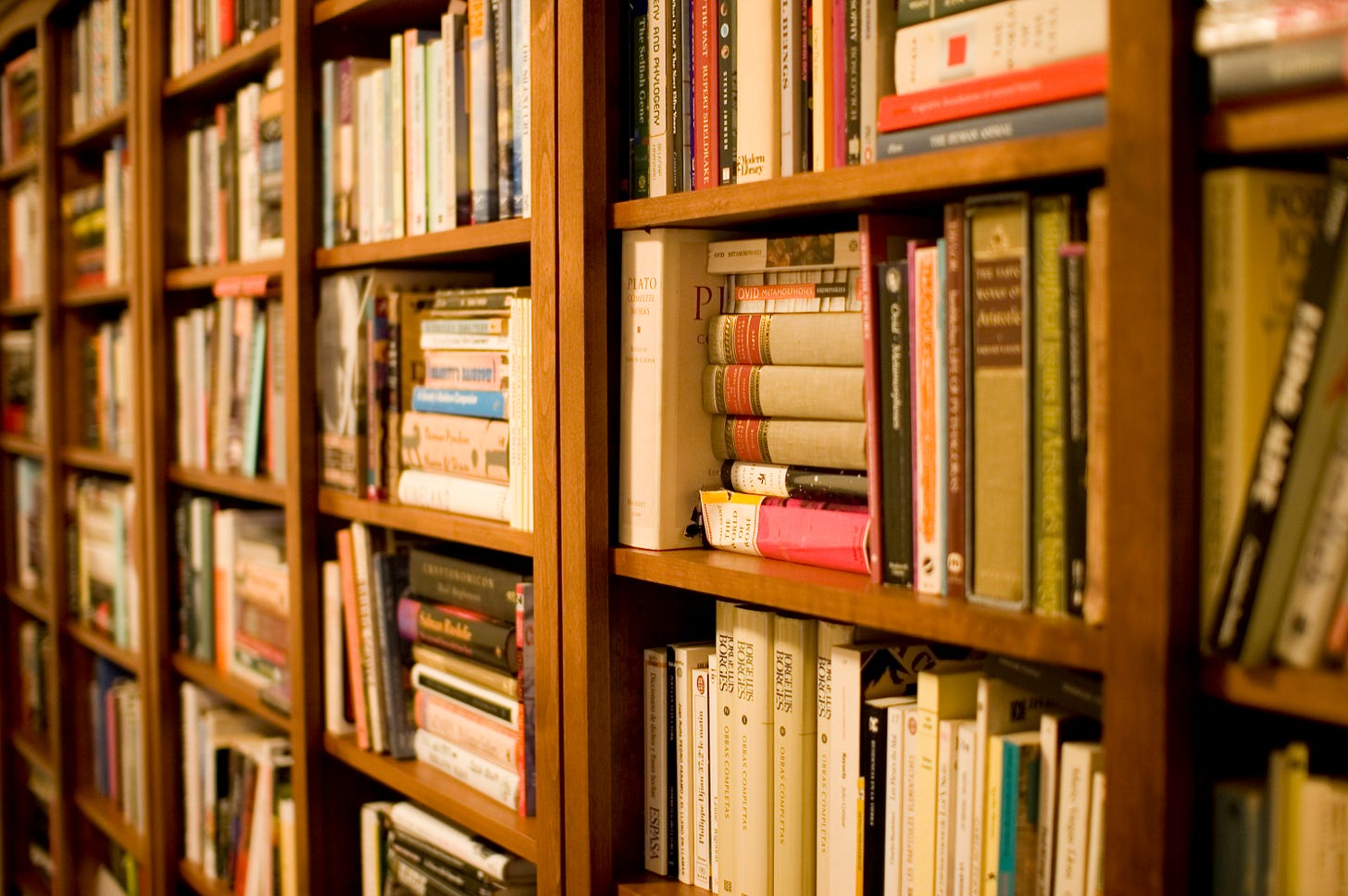I’m going to discuss why I read. I recently listened to a conversation between Russ Roberts and Andy Matuschak on EconTalk, where they discuss one of Alex’s recent blogposts about why books are not a great way for people to gain knowledge. The conversation got me thinking about why I read in the first place as it’s my main hobby. I’m a Ph.D. student right now. After I get back from work, I’ll eat dinner and then read for around 2 to 3 hours before I go to sleep. I read a lot of nonfiction. I used to read exclusively nonfiction with the occasional science fiction novel over the past couple years, but recently I’ve added fiction into my book diet. There are a few dominant strains that described the kinds of books I read, but often what I end up reading is serendipitous.
When I just try to describe what I enjoy reading, I realize that there isn’t really a theme that works through all of them that I can identify and say, “This is what I read”. That being said, I’m going to try to do so. I read a lot of history. History is the main thread that ties together the books I read. I love history, can’t get enough of it. I read a lot of biography as you probably guessed from my last blog post. I read about complexity. I’ve been interested in complex adaptive systems as a new paradigm for the way that we approach science and epistemology. I also read a lot of urbanism and cities in general. Fiction-wise, I read a lot of science fiction and recently I’ve been getting into classical literature in an attempt to become cultured. Really, I read about what I’m interested in and I have no idea why I am interested in the things that I am.
As I thought about the reasons that I read, I came to understand that I really don’t have any particular reason why I do. I don’t have an instrumental reason for doing it. I’m not trying to gain insights from books in order to get a competitive edge over other people. It seems like a lot of people in my twitter feed read to do that. I do pick up stuff from reading, don’t get me wrong, but mostly its unconscious. I don’t take notes. I don’t highlight. I don’t write any reflections on what I read. I don’t mark anything on the book, I just read it. I just sit there and absorb it. I let the content flow over me. Of course, I think about what I’m reading and pause to reflect occasionally. But I’m not consciously trying to pick up a message or learn something that I can add to my tool belt, because I’m not systematic like that, I don’t care to do it. I’m actively anti-planning. I just enjoy the act of reading. Maybe it’s a kind of meditative practice, a way for me to get out of my everyday life and just dive into some completely novel topic.
A big thing I enjoy about reading is that it opens me up to completely different experiences and viewpoints that I otherwise wouldn’t be able to see. People talk about fiction serving that purpose, whereby reading fiction you can you learn about how other people think. And that’s true. Nonfiction more effective for me to get this understanding. The problem with fiction is that I know it isn’t real, and that takes away a bit from the wonder. When I pick up a book about medieval Africa or something, really anything, I realize just how much stuff there is out there that I don’t know. Or when I read a biography and the person’s life sounds like something a fiction writer would spin up, I have a greater sense of awe than I would if I read a novel. I appreciate how interconnected everything is. How everything depends on everything else. That is major theme of complexity theory obviously, but it’s true of history also. There’s a saying that history may not repeat itself, but it does rhyme. I think that’s true in some sense. There are archetypes and trends that run through history, popping up in the most seemingly unconnected places. It’s not a deterministic process where if you see something at this point in history, you know that something you’ve seen before is going to happen again. That doesn’t work. But you do see threads and pulling on those threads is extremely satisfying.
Reading really is a type spiritual experience for me because it picks up my mind and places it somewhere it has never been before. I get a taste of the numinous. I love that experience of finding something I know nothing about and diving down a rabbit hole learning about it. I think when I first began to read seriously it was probably in high school. I was introduced to Orientalism by Edward Said and it captured me. That first hit got me on the whole intellectual book trend. At that point, I think I was reading to learn and improve myself. I don’t know if I had a particular objective in mind, but I wanted to learn to better myself in some way. Or at least signal to others that I am smart because I read fancy books. My thought, and hopefully my underlying emotional reason, for reading has shifted over the past few years to understand that reading is entertainment like any other. Ok maybe not like any other but it is entertainment, and I don’t need a reason to do it. I love to read, so I read.


